Undergraduate students from the School of Economics and Management at Tsinghua University (Tsinghua SEM), accompanied by teachers from Tsinghua's x-lab, embarked on a research and practice trip to Italy and Germany in February 2023. The trip explored ways in which manufacturing enterprises can enhance industry-university-research cooperation and R&D innovation to promote high-quality development.
On the morning of February 9, the team visited the Enzo Ferrari Museum and the Maserati plant in Modena. The team was highly impressed by the technology, precision, and processes of the Italian automotive manufacturing industry.
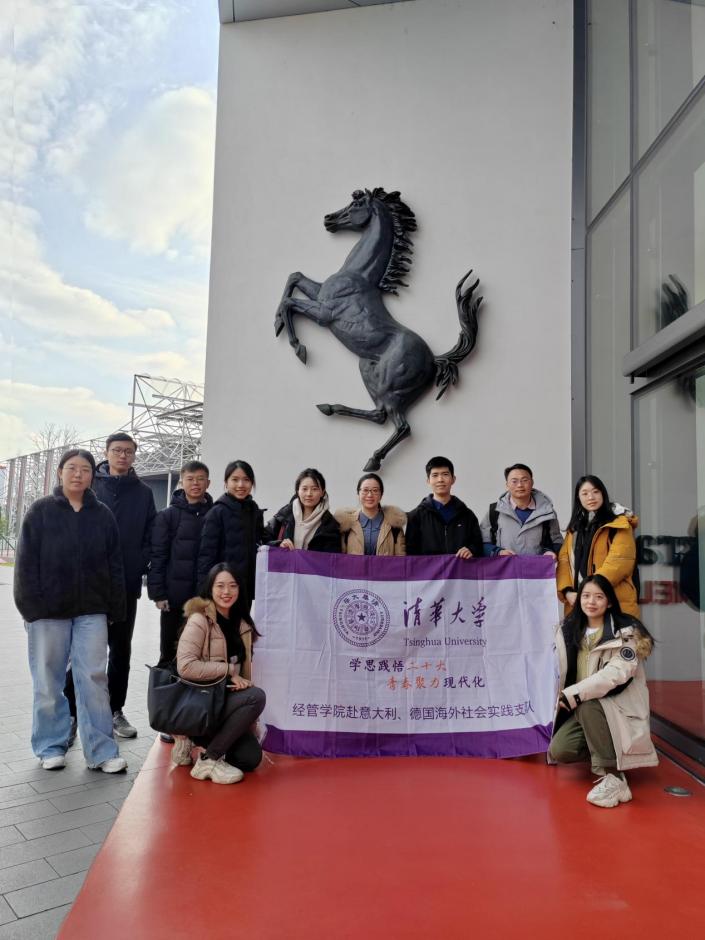
Tsinghua team members at the Enzo Ferrari Museum
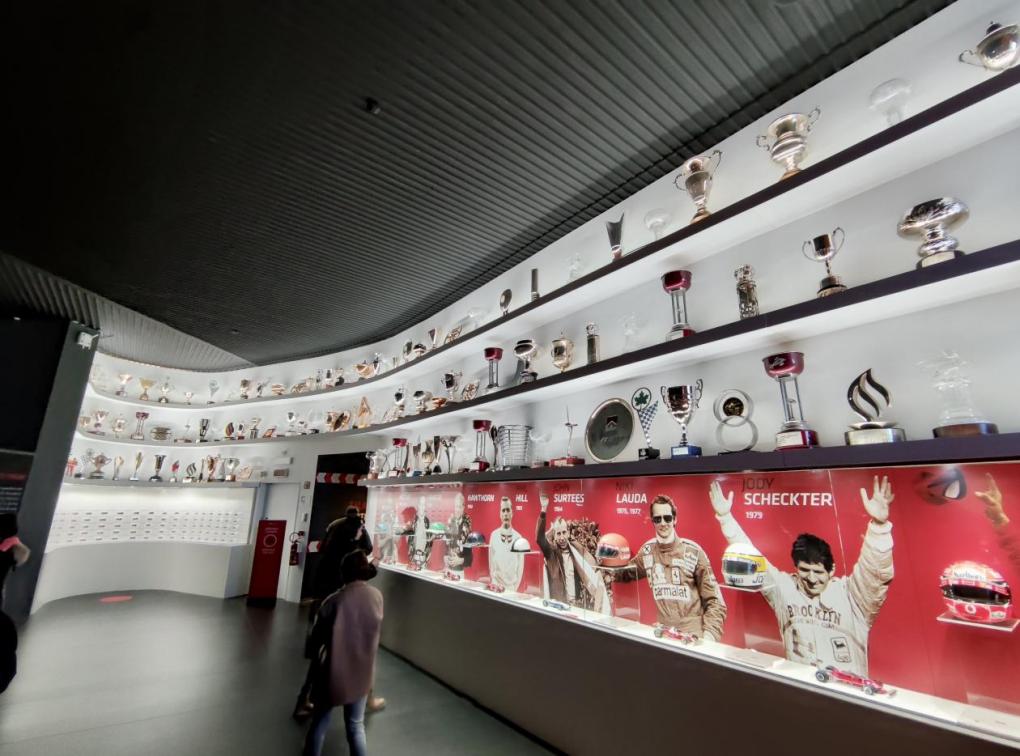
Tsinghua team members visit the Enzo Ferrari Museum that displays awards won by Ferrari race cars and drivers.
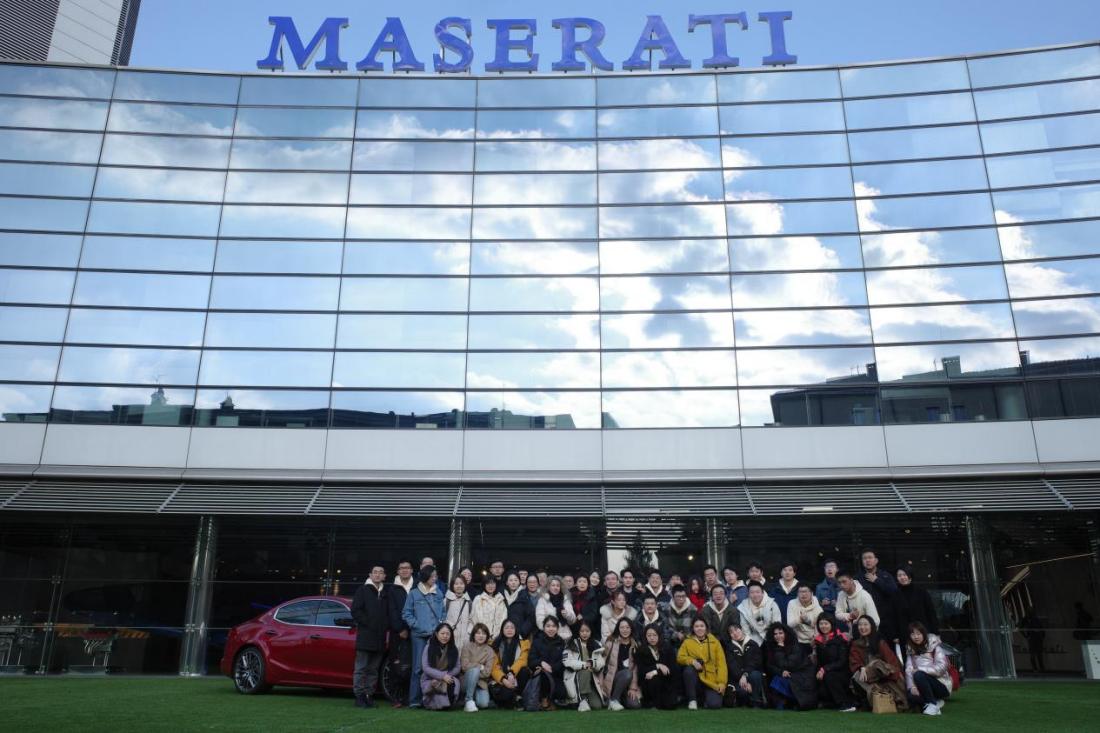
Tsinghua team members at the Maserati plant
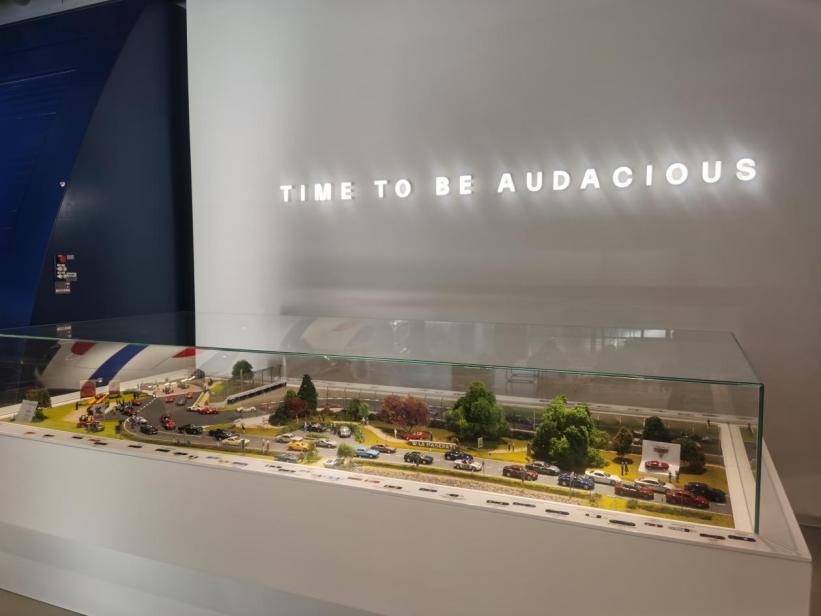
A display of miniature Maserati car models
The team visited the MADE Competence Center Industry 4.0 on February 10. The center is a public-private partnership created by the Italian Ministry of Economic Development (MISE) to support manufacturing companies in their digital transformation. As business models evolve, MADE provides services and support for the development and transformation of Italian and international enterprises from a science and technology perspective.
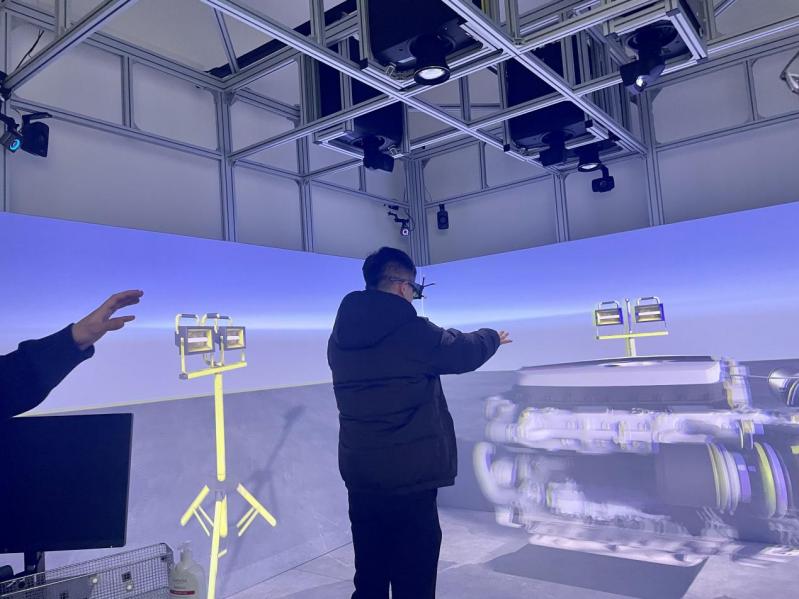
A Tsinghua team member experiences virtual reality (VR) at the MADE.
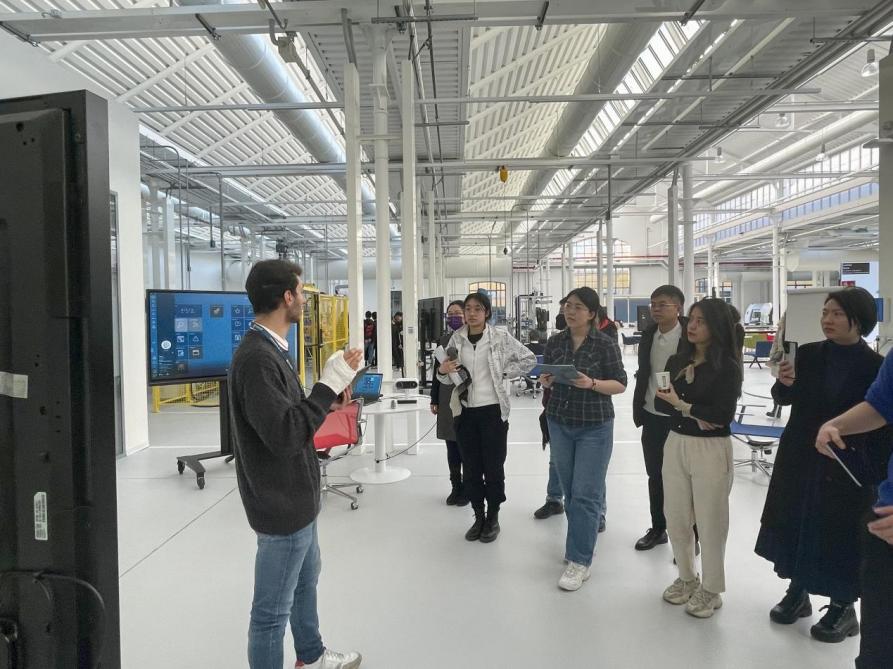
Tsinghua team members listen to a guide who shows them around at the MADE.
The visiting team conducted a research tour of PoliHub, an incubator of Polytechnic University of Milan based on the university's ecosystem, which produces deep tech start-ups. Deep tech refers to technology with high research and development costs and market risk. It is a model of industry-university-research collaboration in Italy.
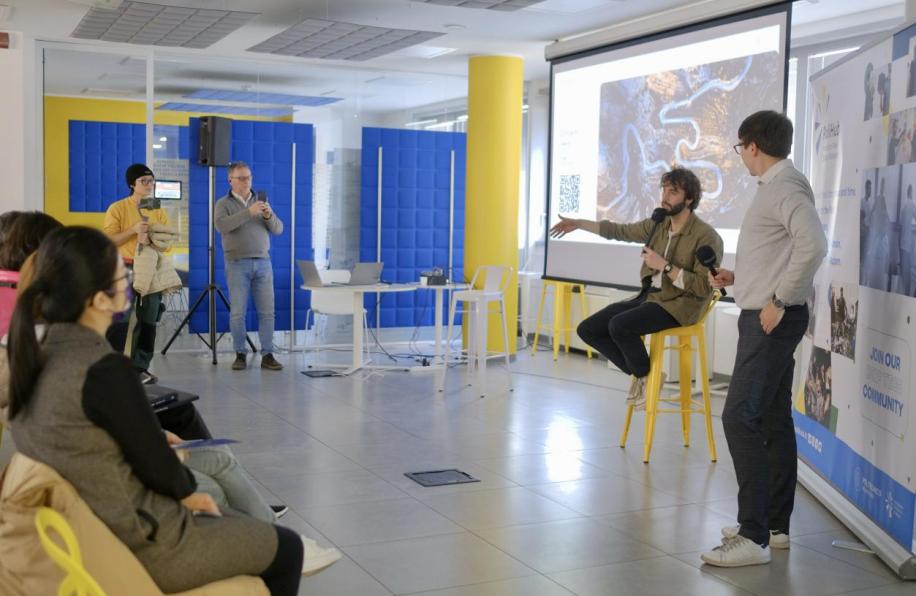
Tsinghua team members interact with PoliHub staff.
From February 10 to 11, the team visited Italy's renowned Polytechnic University of Milan and participated in the China-Italy Youth Cultural Inheritance & Innovation Program study tour organized by POLIMI Graduate School of Management (GSoM).
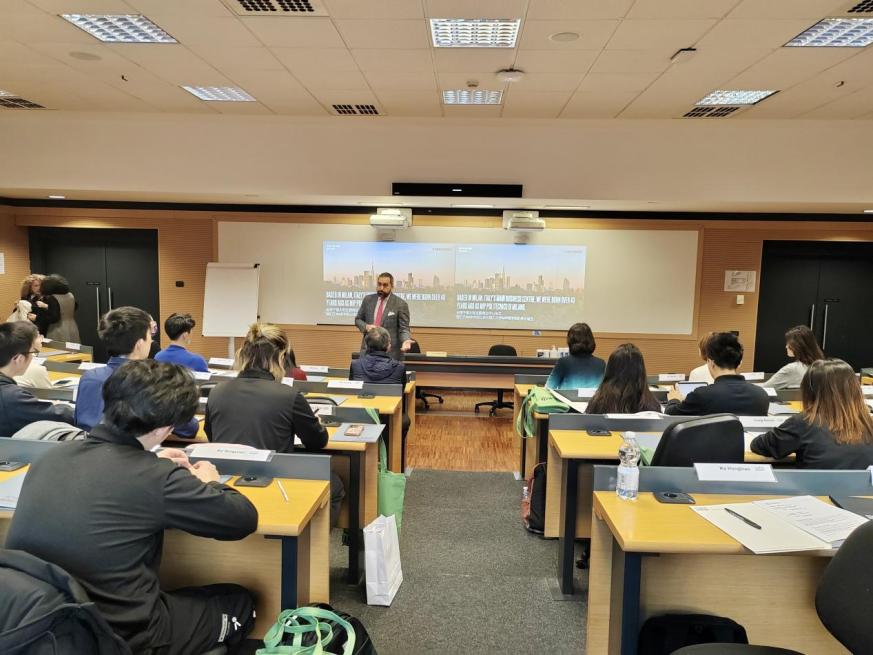
Tsinghua team members attend a lecture.
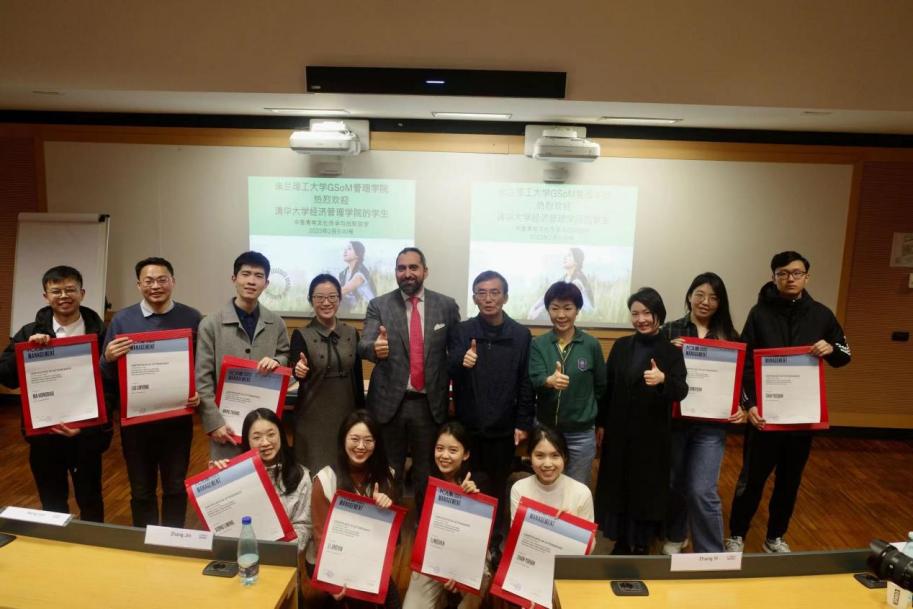
Tsinghua team members attend the study tour’s closing ceremony and pose for a group photo with the lecturer after receiving their certificates.
The China-Italy Youth Cultural Inheritance & Innovation Forum convened at the China-Italy Design Innovation Hub of Tsinghua University in Milan on February 11. Prominent figures, such as GUO Yong, vice chairman of Tsinghua University Council and deputy party secretary of Tsinghua University, Giuliano Noci, vice-rector for China of Polytechnic University of Milan, and ZHANG Hong, deputy consul-general of the Chinese Consulate-General in Milan, attended the event as speakers. The forum, themed "The Responsibilities of Youth in Promoting Cultural Heritage, Innovation, and Civilization Exchange," aimed to encourage Chinese and Italian youth to promote cultural heritage, innovation, and civilization exchange by presenting innovative ideas, sharing research interests, and facilitating constructive dialogue. During the forum, Chinese student LI Muchen delivered a speech titled "Innovation: Building the Bridge between Culture and Future." The speech focused on the application of business innovation in cultural inheritance and explored the responsibilities of young people in cultural inheritance from the perspectives of marketing innovation, management innovation, and financial innovation. LI said, after her experiences in Italy, "I realized that high-end manufacturing industry is the integration of technology, design, and service."
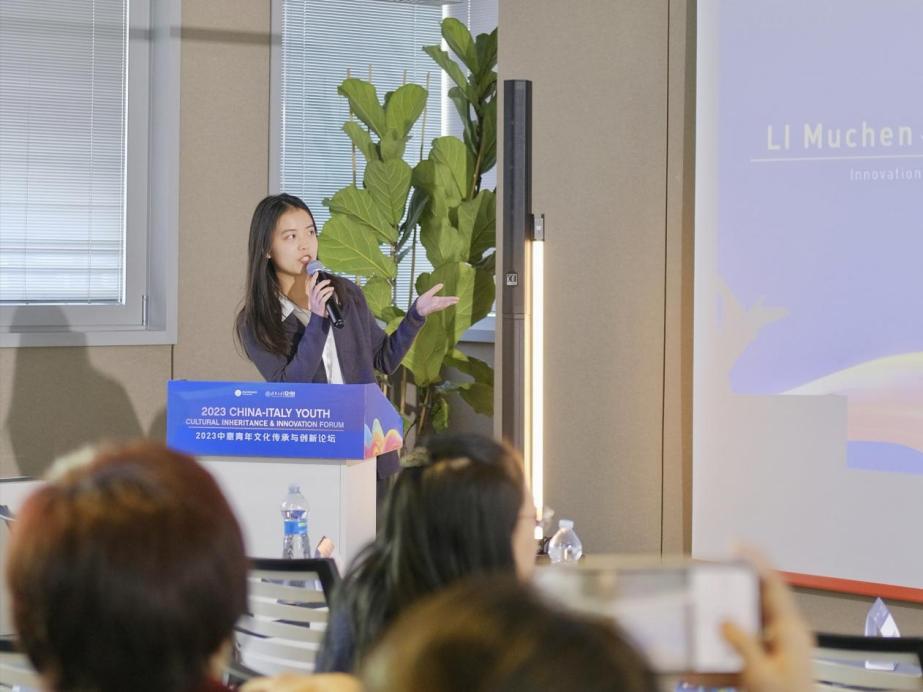
LI Muchen delivers her speech.
On February 13, the team visited two renowned institutions in Munich: the WERK1 incubator and the Fraunhofer Society for the Advancement of Applied Research, the largest applied science research institution in Europe. WERK1 is a plays a crucial role in Munich's innovative industry by significantly reducing innovation costs for technology startups and digital enterprises, thus promoting the development of innovation and entrepreneurship among small and medium-sized enterprises. The Fraunhofer Society is dedicated to developing new technologies, products, and processes for companies, particularly small and medium-sized enterprises, by helping them to overcome various challenges in their innovation and development.
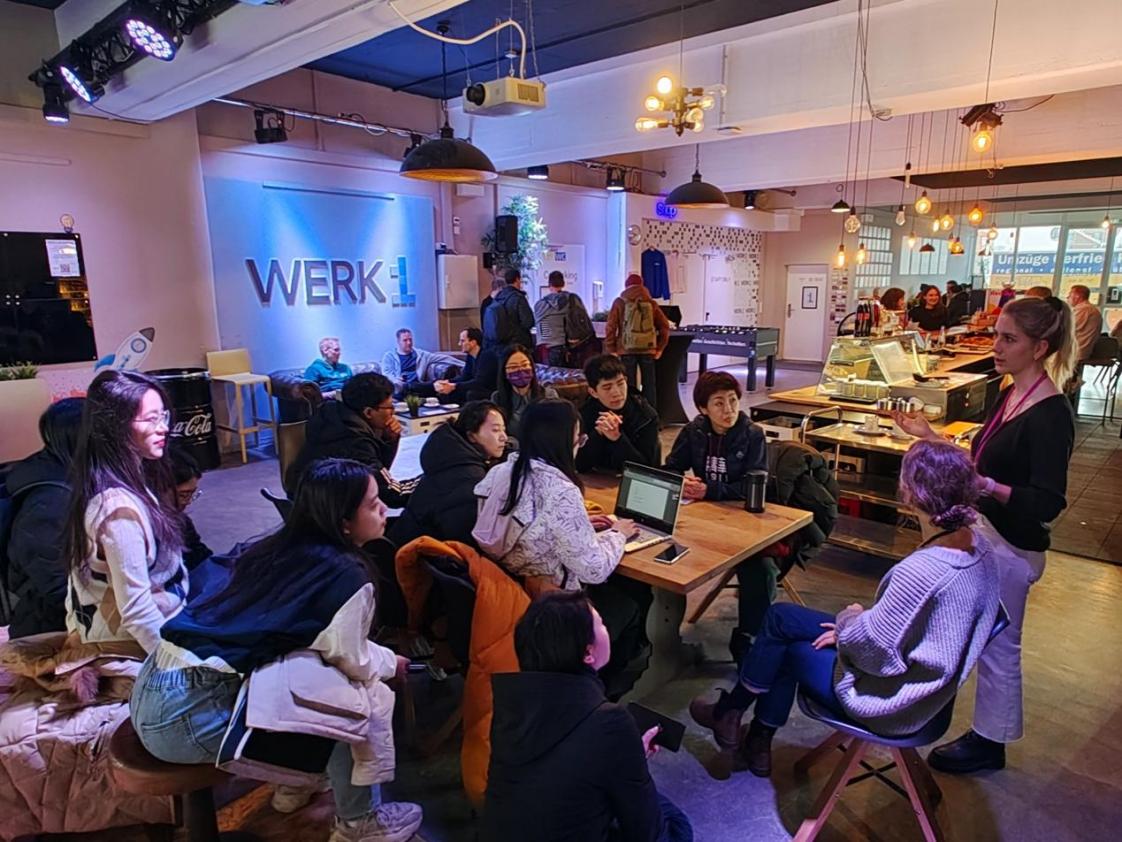
Tsinghua team members meet with a WERK1 executive.
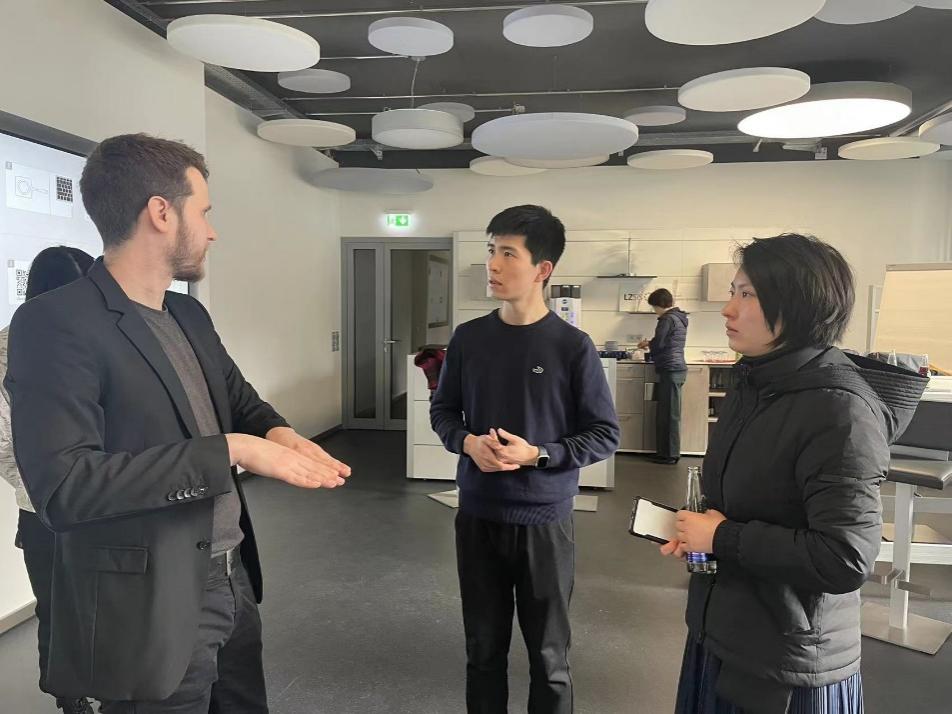
Tsinghua team members visit the Fraunhofer Society for the Advancement of Applied Research.
The team visited BMW Group's Munich manufacturing plant for research and study on February 14. The BMW Group is a renowned car and motorcycle manufacturer and is considered one of the world's most successful. With ownership of three premium brands - BMW, MINI, and Rolls-Royce - the company has 31 production and assembly plants across 14 countries, and has an extensive sales network covering more than 140 countries and regions.
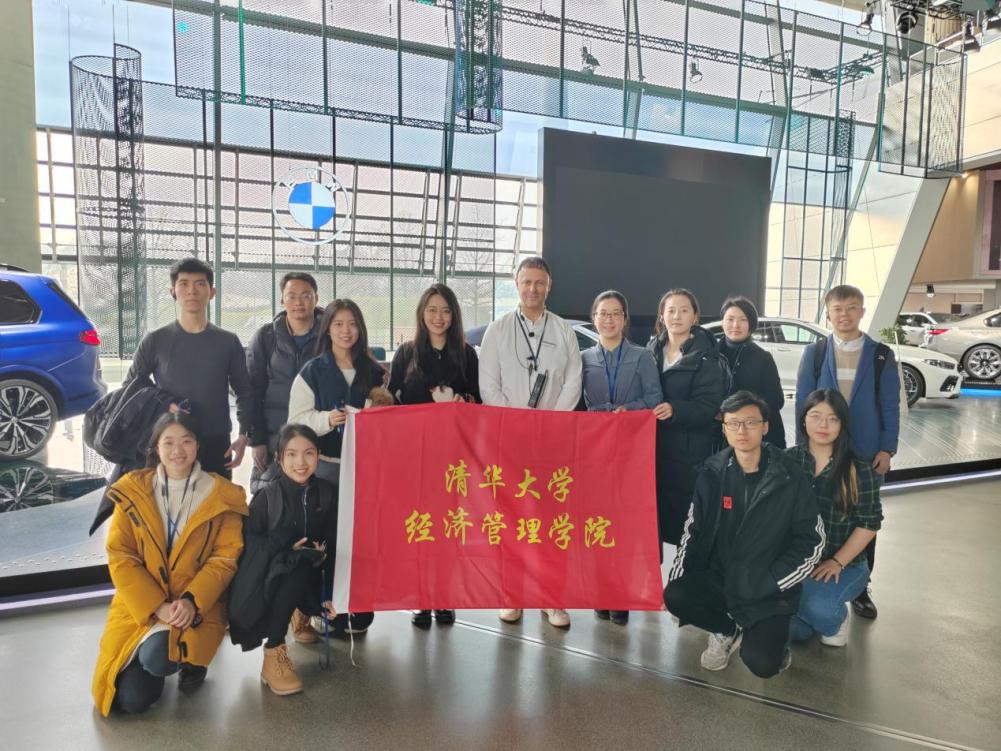
Tsinghua team members pose for a photo with a BMW executive.
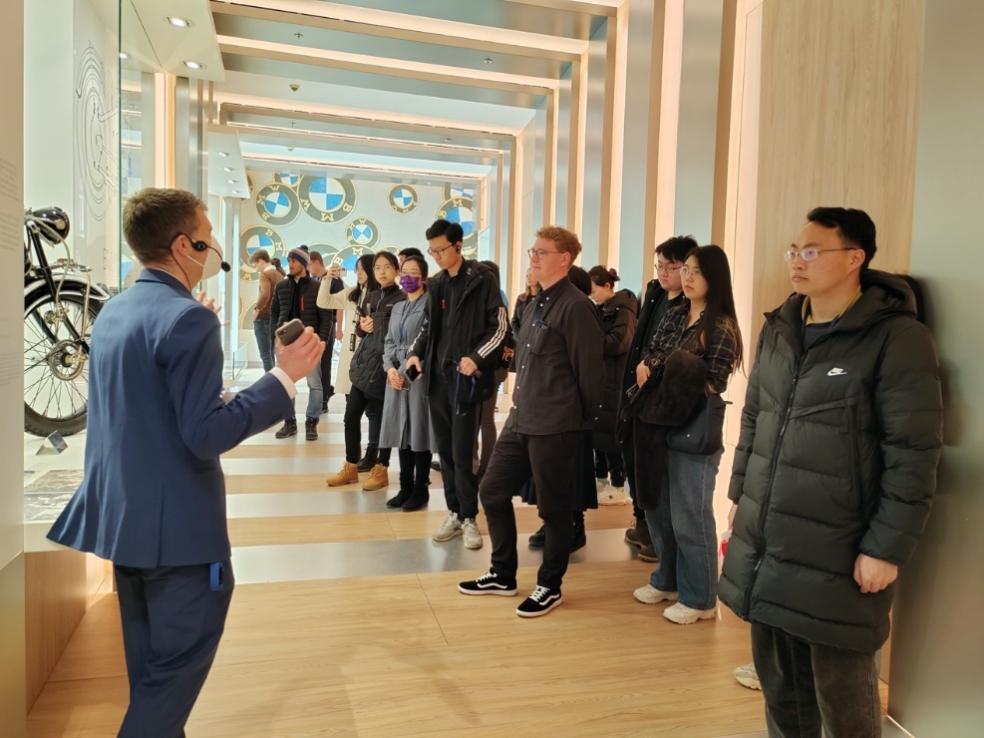
Tsinghua team members visit the BMW Museum.
On February 15, the team visited the Technical University of Munich (TUM) and discussed with representatives from TUM ForTe and UnternehmerTUM. TUM ForTe, which serves as a technology transfer center and a crucial industry-university-research institution of TUM, is in charge of research funding support, strategic collaboration between universities and enterprises, and promoting innovation and entrepreneurship among university students. As a joint venture platform between TUM and leading industry players, UnternehmerTUM focuses on driving innovation and entrepreneurship in various technology sectors, such as robotics, medical care, and new energy.
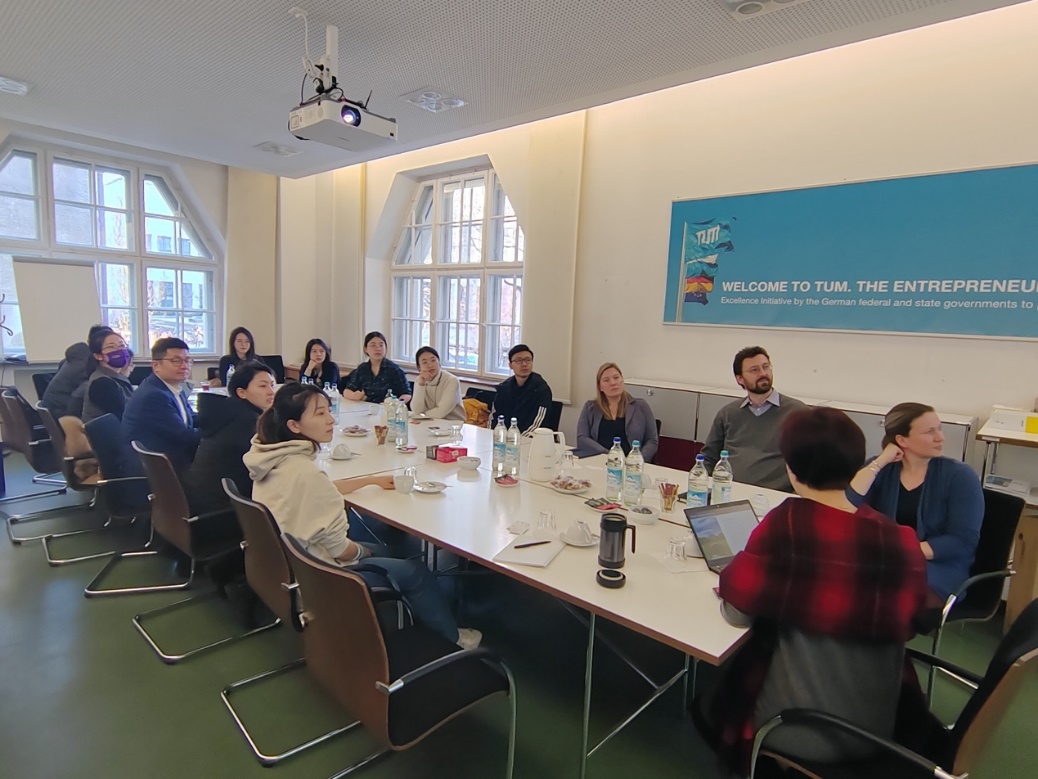
Tsinghua team members speak with the director of TUM ForTe.
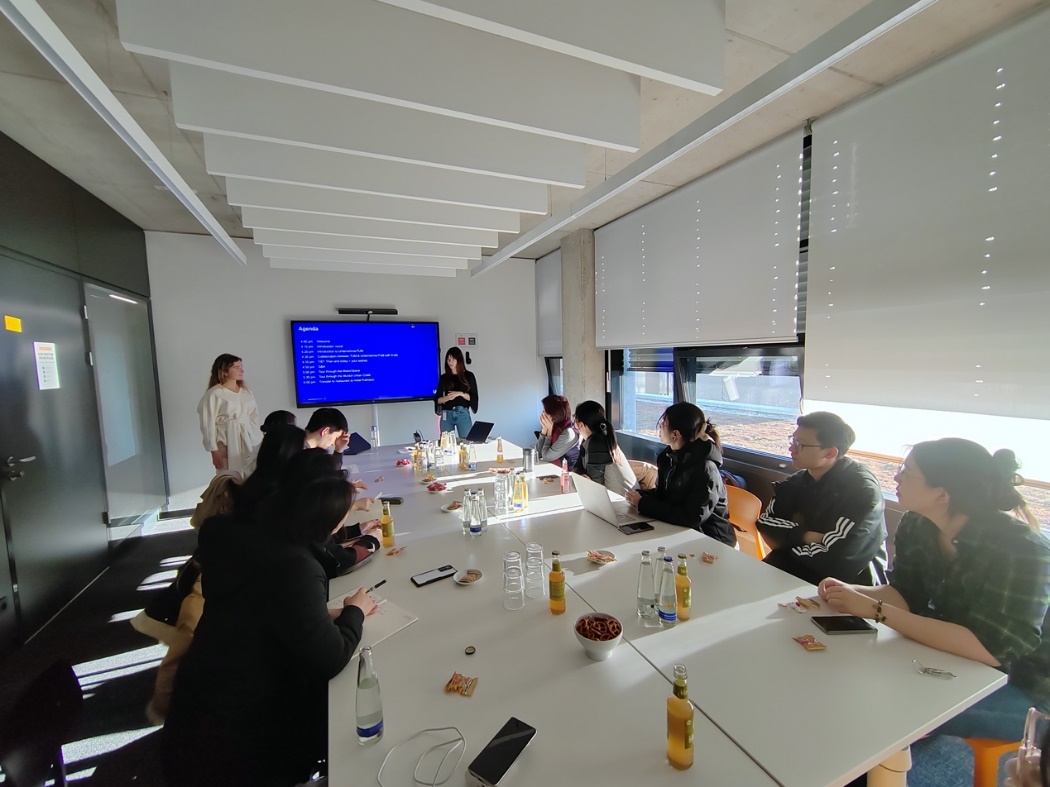
Tsinghua team members meet with the director of UnternehmerTUM.
Team members obtained a deeper understanding of Germany's industry-academia collaboration, the automotive manufacturing industry, and the integrated system of industry-university-research led by universities. They said the well-developed and thoughtful innovation support system, flexible and forward-thinking business philosophies, supported by a strong academic atmosphere for scientific research, are the main reasons why Germany's manufacturing industry is a world leader. "My most profound feeling is that innovation requires a complete support system as a foundation. TUM has a highly-developed mechanism for supporting innovation and entrepreneurship, ranging from innovation and entrepreneurship education courses for students to various entrepreneurship challenges and activities for students interested in entrepreneurship, as well as consultation services and mentor matching mechanisms for students with entrepreneurial ideas. Additionally, TUM provides a series of incubation services such as office space and financing demand docking for entrepreneurial enterprises. This full-chain service mechanism is a strong support that enables the European manufacturing industry to maintain its world-leading position, and is also an experience worth learning from for China to transform its manufacturing quality," said SEM student WANG Zihang.
By comparing research findings in Germany and Italy, the Tsinghua SEM team gained a deeper understanding of the similarities and differences of Europe's innovation incentive mechanisms. The students said Italy is more advanced in introducing and applying cutting-edge technology, with a competitive edge in high-end design brands and a high degree of digitalization and intelligence in the industrial chain. By comparison, Germany's strengths lie in its well-developed innovation and entrepreneurship coaching services, competitive innovation system, support from the vocational education system, and guidance from its spirit of craftsmanship. Innovation is an ecosystem that includes market participants such as university research institutes, innovation incubators, industry-university collaboration hubs, startups, and mature companies. Only the balanced and full participation of all parties can ensure healthy and sustainable development of the entire ecosystem and industry chain.
From Tsinghua SEM
Editor: Li Han

